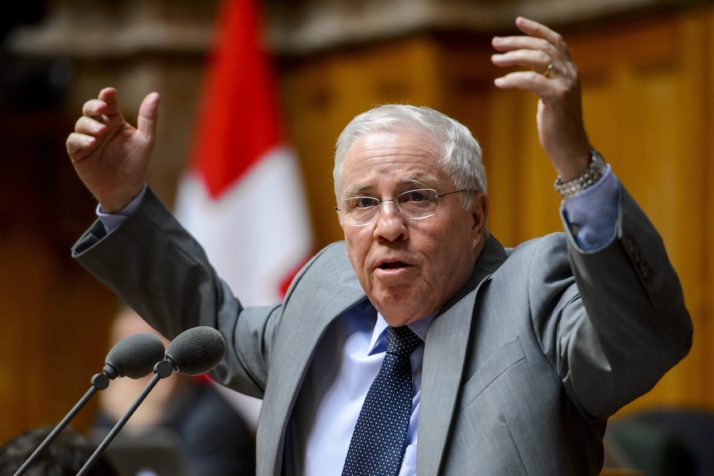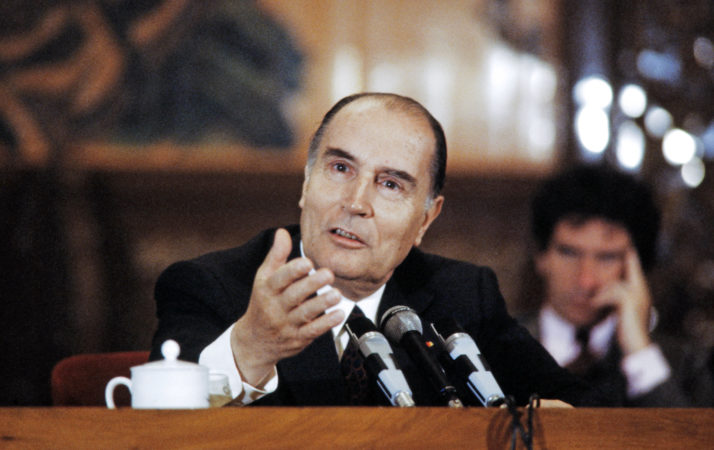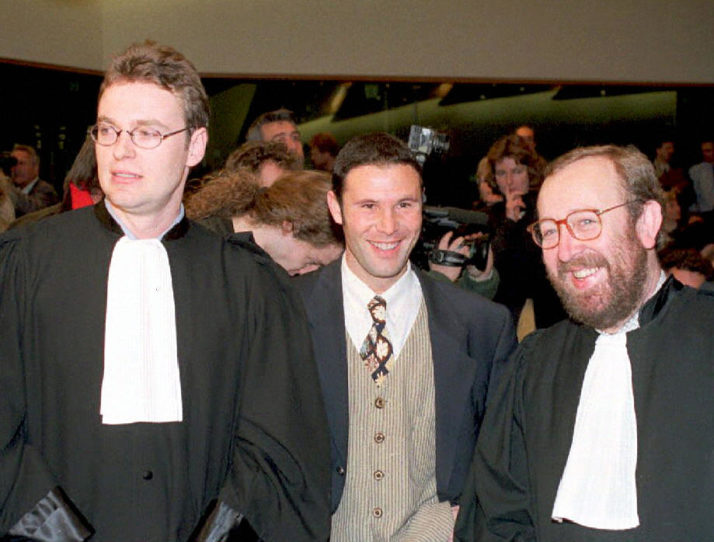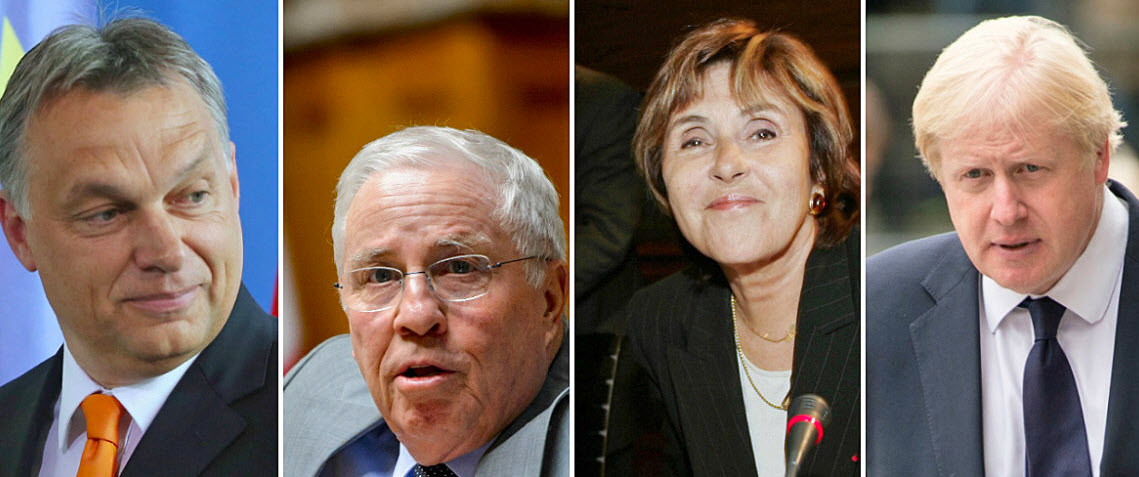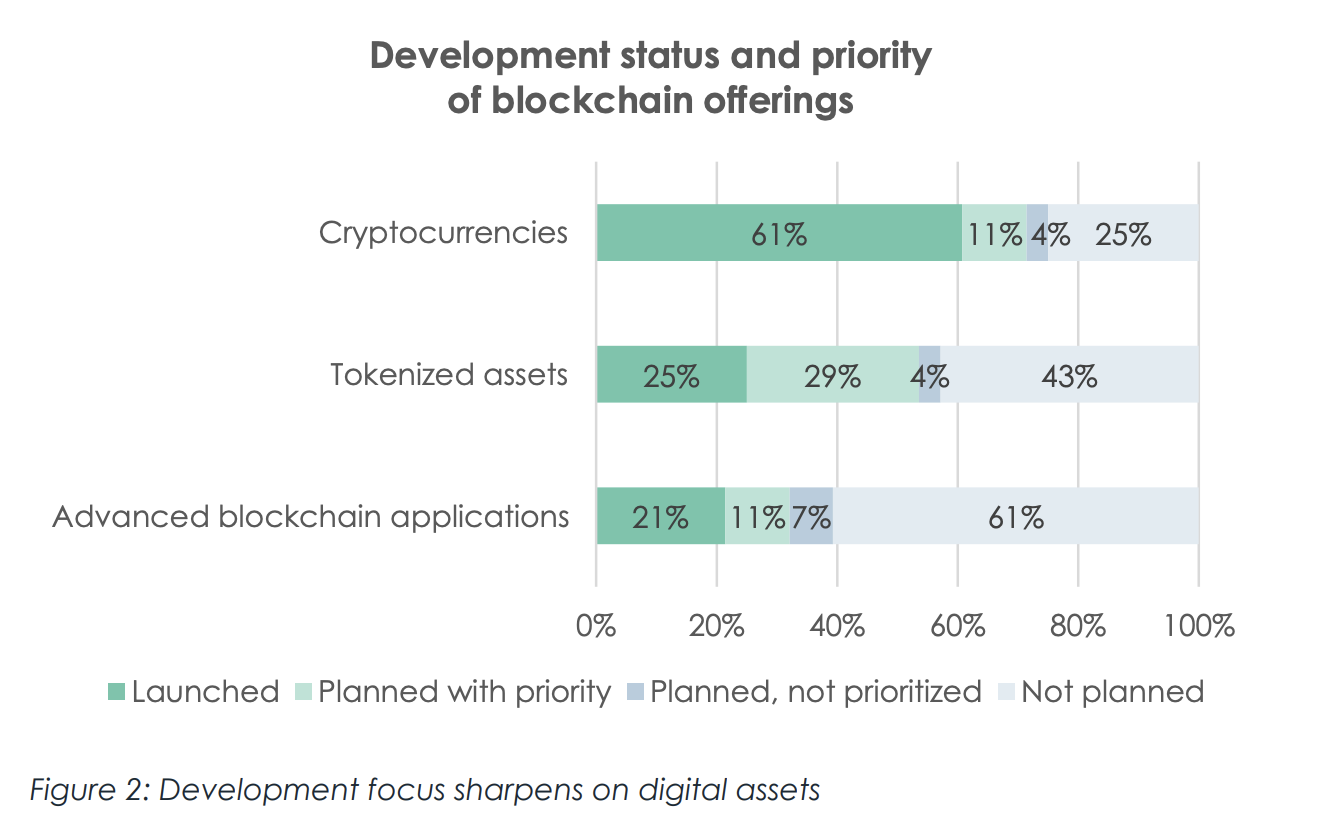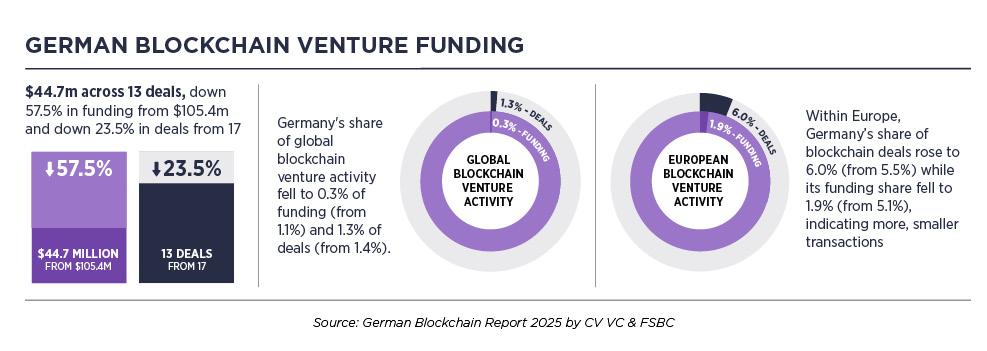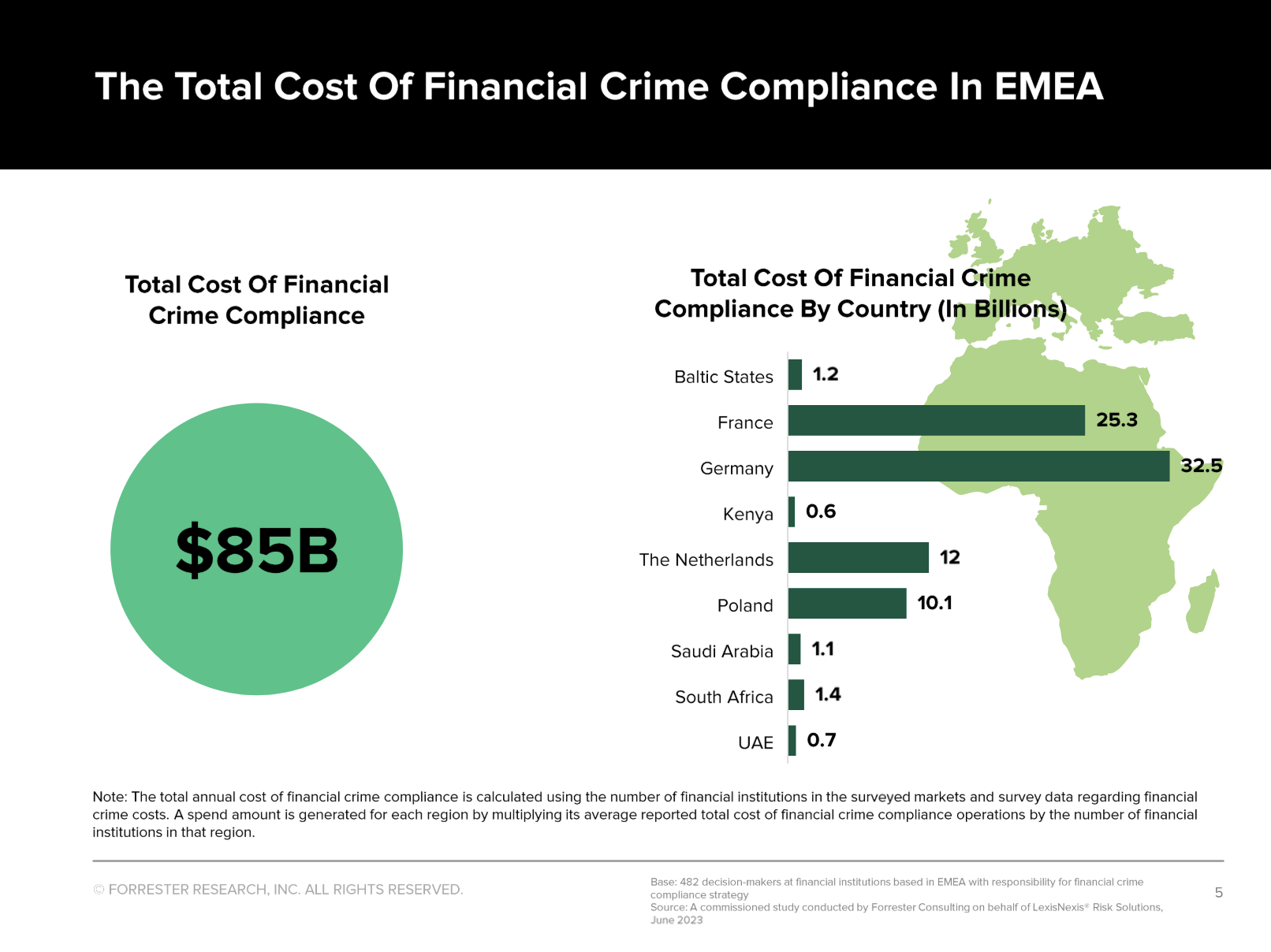Last weekend, European leaders gathered in Rome for the 60th anniversary of the Treaty of Rome. They discussed, not for the first time, how to get the EU back on track. And they told each other they are still committed to the Union and believe in its future. (We’ve heard that one before, too.)
But let’s just suppose that, when the European leaders sat down for lunch at the Quirinal Palace, some of them had a little too much of the pinot grigio and waxed nostalgic about the days when the idea of a united Europe was still young and promising and beautiful. And then they talked about this week and how British Prime Minister Theresa May would send her goodbye letter and they started slurring their words, saying Grexit, Brexit, Frexit, and they finally admitted to each other that something has gone horribly wrong.
When they stood up and got ready to leave, they were devastated, saying to each other: “Good God, how did it come this and, more importantly, who is to blame?” We’ve gathered a dozen suggestions.
1. Zeus
Whenever Europe is in trouble, its advocates claim the EU lacks a proper narrative. The whole idea of an “ever-closer union” is still a fine one, they argue, and the only thing that’s needed for people to understand it is a memorable story. The most memorable story about Europe, of course, is the one about Zeus. The Greek God disguised himself as a white bull in order to approach a beautiful girl called Europa. When Europa, perhaps naively, climbed on his back, the God-turned-bull abducted and ravished her. No need to take the story too literally when analyzing the EU’s current malaise (no white bulls there). But it is good to keep in mind that Europe’s founding myth doesn’t exactly bode well for its future. If negative narratives about the EU seem to resonate far more than positive ones, maybe it’s because the Greek gods loaded the dice.
2. Edith Cresson
Going straight from Zeus, ruler of Mount Olympus, to good old Edith Cresson may seem a bit of a stretch. But as a strong contender for the title of worst European commissioner ever, the Frenchwoman does have a claim to fame, too. In the early 1990s, Cresson was a French prime minister who quickly fell out of favor and was forced to resign after less than a year in office. That apparently qualified her for a high-powered job in Brussels. As commissioner for science, research and development, Cresson famously paid her dentist to be a scientific adviser. In 1999, allegations of fraud intended to target Cresson ended up bringing down the entire Commission. To put it crudely: Cresson did to the EU what Zeus did to Europa.
3. Christoph BlocherLook at any map of the European Union and what stands out is the blank spot at its core. The holdout is Switzerland, mountainous, beautiful and immensely wealthy. The Swiss owe their status as successful non-members to a man named Christoph Blocher. Back in the early 1990s — when Geert Wilders was still a young parliamentary assistant with funny hair, Marine Le Pen just the daughter of right-wing populist Jean-Marie Le Pen, and in Germany the letters AfD stood for Allgemeiner Finanzdienst, a financial services firm that has since changed its name — the Swiss industrialist led a successful referendum campaign against the path to EU membership. Blocher knew how to push the right buttons and arouse in the Swiss a deep fear of outsiders, be they from Brussels or the Balkans. His blend of anti-immigration and anti-EU politics would provide the blueprint for populist campaigns elsewhere. What’s more, the Alpine nation made a strong case that the economic benefits of close relations with the EU can be had without fully joining the club. (Norway provides another fine example.) |
|
4. BrusselsSome decades ago, when the EU’s founding member countries were looking for a place to house institutions such as the European Commission and the European Council, they thought they had found something suitable. It was a city located halfway between the glamorous French capital of Paris and the not-so-glamorous West German capital of Bonn. And it was called Brussels, like the famous sprouts. The French hoped the Belgian capital would turn into a twin city of Paris, populated by sophisticated graduates of the Grand Écoles. What they got instead was the European Quarter, an architectural nightmare, more Brasilia than Paris, that is oddly isolated from the indigenous people in its vicinity. Brussels may not be the “hellhole” U.S. President Donald Trump described but, as anyone who has worked there knows, the EU capital lacks atmosphere. As a result, Europe’s de facto capital has been struggling to attract the kind of talent that would happily flock to more inspiring places, such as Paris or Amsterdam. Maybe even Bonn would have been a better choice. |
|
5. François MitterandThere are quite a few people who’ve been given the moniker “Father of the euro.” (The mother of the euro wasn’t around when the currency was conceived.) Most of these fathers were economists. But Europe’s single currency was predominantly a political project, not an economic one — and blaming economists for its failings is missing the point. François Mitterand, the charismatic French president, knew a lot about the art of political intrigue and far less about monetary policy. Looking to subdue the strong Deutschmark (which he called “Germany’s force de frappe,” or nuclear weapon), he kept pushing for a single currency — and found an ally in German Chancellor Helmut Kohl, also more of a political animal than an economic one. When the Berlin Wall fell and Kohl needed international support for Germany’s reunification, the French president, allegedly, negotiated a quid pro quo, convincing the Germans to give up the Deutschmark. But the father of the euro did not live long enough to see that things wouldn’t go according to plan. The German economy flourished in the eurozone, the French one didn’t, and the EU, as a whole, would have been better off without its wayward child. 6. Antigone LoudiadisThis list of villains would be incomplete without at least one specimen of the scheming investment banker. Our candidate goes by the name of Antigone Loudiadis. Accordingly, there’s a whiff of Greek drama to her story. Loudiadis was a whip-smart Goldman Sachs banker and worked with Costas Simitis’ government back in the early noughts, when the Greeks were desperately seeking to join the eurozone. The Anglo-Greek banker was instrumental, allegedly, in devising complex derivative trades to hide the country’s true debt level. In a Sophocles play, our heroine would have met a terrible fate, perhaps buried alive and mourned by a chorus of elderly Thebans. In contemporary Europe, she lived happily ever after, eventually founding a London-based insurance company and running it as CEO. |
|
7. The unnamed EU officialThere are some 50,000 people working for the EU, depending on how you count. Though their names can be looked up in the organization’s vast databases, they mostly toil in anonymity, and the vast majority of EU citizens would likely not be able to name a single commissioner. In the popular imagination, Brussels has become a present-day version of Kafka’s castle, dominated by faceless paper pushers who work for opaque entities called DG something-or-other and invent regulations concerning the length of cucumbers. That sentiment may not do justice to what unnamed EU officials actually do. But what do they do? It’s safe to say that the EU hasn’t done enough to capture the hearts and minds of the people. There’s no stylish image campaign, no employee-of-the-month program, not even a Pirelli calendar with sexy bureaucrats posing in attractive office cubicles. 8. Boris JohnsonThey say the flapping of a butterfly’s wings can cause a hurricane somewhere thousands of miles away. In the early 1990s, Boris Johnson (the butterfly in this case) was the Daily Telegraph’s correspondent in Brussels — and an early exponent of a literary genre called the “Euromyth.” One such Euromyth, headlined “Delors plans to rule Europe,” was read in far-away Denmark where the Danes were holding a referendum on the Maastricht Treaty. In Johnson’s telling (not to be trusted, of course), the Telegraph story mysteriously tipped the balance, triggering a Nej and leading to all kinds of repercussions that still reverberate today. What’s more, the incident sold Johnson on the fun of flapping his wings, which he did to even greater effect in early 2016 when he joined the Vote Leave campaign, eventually effecting a tornado called Brexit. If Johnson has his way, he’ll enter the history books as the only man who ruined the EU not once, but twice. |
|
9. The Swabian housewifeRumors that the Germans are making sacrificial offerings to a deity called the Swabian housewife are probably exaggerated. But Chancellor Angela Merkel did invoke the German goddess of austerity when the financial crisis hit, saying that, like the Swabian housewife, she thinks one shouldn’t live beyond one’s means. Finance Minister Wolfgang Schäuble is a believer, too, stubbornly opposing debt relief and stimulus programs. Keynesian economists countered by coining the term “Swabian-housewife fallacy.” They argue that what makes sense on an individual level, meaning personal finances, can wreak havoc in international politics, meaning the EU. (But then again, some EU governments could have used a tad of that Swabish housewifeliness in the run-up to the euro crisis.) 10. Jean-Marc BosmanThis Belgian football player didn’t have much of a career. He stopped playing in his twenties, was sentenced to jail for assault and now lives unemployed and underfunded in Liège. Nevertheless, Bosman had more of an impact on European club football than any other player around. In the early 1990s, when his contract had lapsed, he sued his Belgian club for, effectively, not letting him go. The case went to the European Court of Justice, which ruled that clubs cannot demand transfer fees when contracts have expired. The court also decided that quotas restricting the number of EU foreigners in club teams had to go. All of that made sense from a legal perspective. But football fans only see what happened as a result: sky-high salaries and transfer fees for star players, a handful of elite clubs who came to tower above the rest, club teams composed entirely of non-nationals. The fans feel that football had been taken away from them. Most of them vent their anger against the evil forces of globalization, liberalization and commercialization. But those in the know blame Bosman — and EU law. |
|
11. Viktor OrbánWhat was Angela Merkel thinking when she opened the German borders to refugees in September 2015? Critics charged the German chancellor with failing to consult with the rest of the bloc before she made her decision, and with aggravating a refugee crisis that has threatened to tear Europe apart. What is often overlooked is that Merkel didn’t act entirely of her own volition. The Hungarian government led by Viktor Orbán put refugees on buses heading for Austria and Germany — and tricked the chancellor into taking an idealistic stand on migration. There would have been no German Willkommenskultur without Hungarian idegengyülölet, or xenophobia. |
|
12. The Treaty of RomeRome stood at the beginning of a proliferation of treaties. Keeping track of what exactly was agreed upon in Nice, Maastricht, Lisbon and elsewhere has become increasingly difficult. There have simply been too many meetings and too many documents named after too many cities. If EU leaders keep meeting like this, we’ll eventually have the Toledo Treaty and the Clermont-Ferrand Regulations. Incidentally, Rome is also where the principle of the “ever-closer union” first popped up. Entire dissertations have been written in defense of that idea. Indeed, closer reading shows that, according to the document, only the European people were meant to engage in “ever-closer union,” not (necessarily) governments, central banks or entire armies. But somehow “ever-closer union” became a synonym for the EU’s self-aggrandizement anyway. Now that Britain is leaving, a little more modesty wouldn’t hurt. So here’s an idea: EU leaders could meet again next weekend, have some more wine and solemnly agree that their utmost goal is to keep the European people “from drifting ever-further apart.” That sounds about right and not too fancy. All that’s needed is a suitable name. How about the Pinot Grigio Declaration? |
Full story here Are you the author? Previous post See more for Next post
Tags: Brexit,central banks,China,Donald Trump,Economy of the European Union,Euro,European Union,Eurozone,Germany,Goldman Sachs,Monetary Policy,newslettersent,Norway,Switzerland,Withdrawal from the European Union









